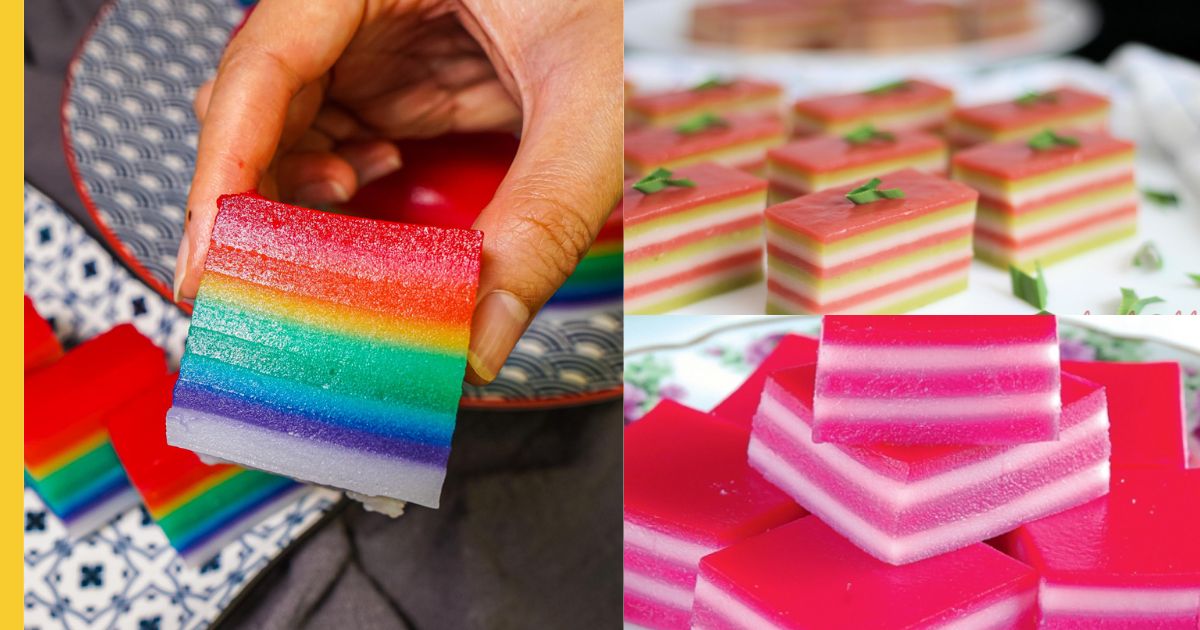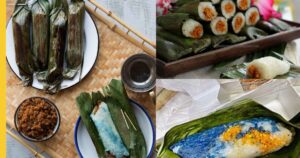Kuih Lapis Malaysia is a traditional and beloved dessert that holds a special place in the hearts of Malaysians. This delightful layered cake, also known as Seri Muka, is a popular treat enjoyed during festive occasions, family gatherings, and even as an everyday indulgence. With its vibrant colours and delectable taste, Kuih Lapis Malaysia showcases the rich culinary heritage of the country.
History and Origins
The history of Kuih Lapis Malaysia can be traced back to the diverse cultural influences that have shaped Malaysian cuisine. The dessert has its roots in the traditional kuih, which refers to a wide variety of bite-sized snacks and desserts in Malay cuisine. Over time, Kuih Lapis Malaysia has evolved into a unique and distinct confection that is cherished by Malaysians of all backgrounds.
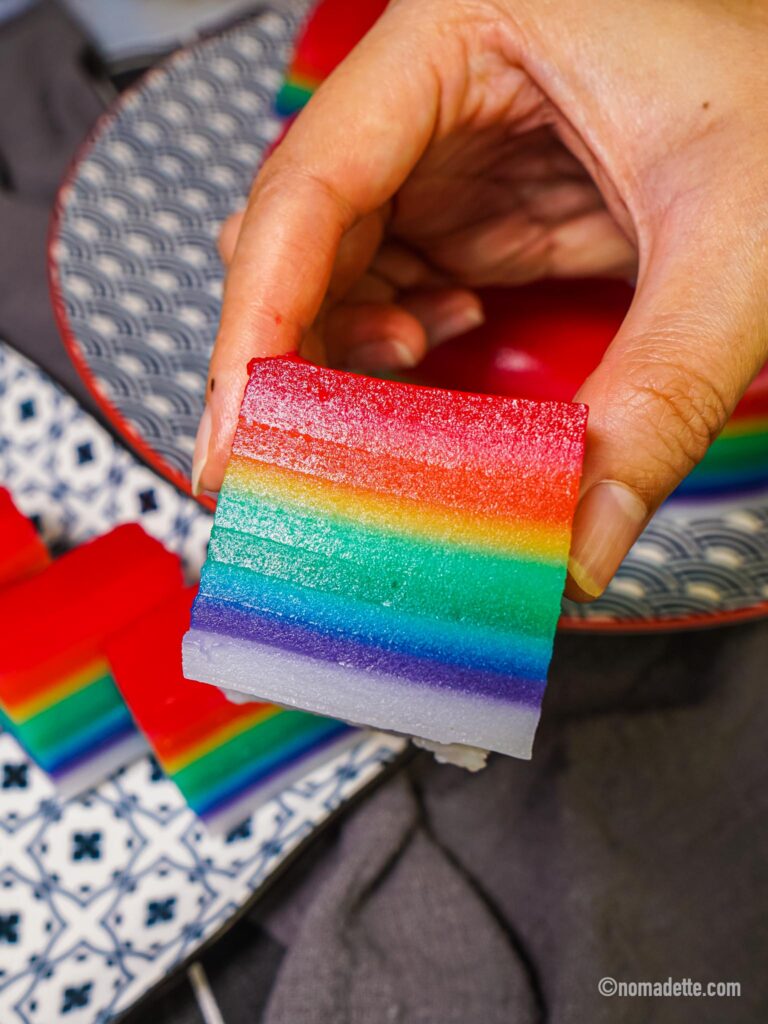
Ingredients and Preparation
Kuih Lapis Malaysia is made using a combination of simple yet essential ingredients. The main components include glutinous rice flour, coconut milk, pandan leaves, sugar, and food colouring. The preparation process involves creating layers by alternating between a sweet, sticky glutinous rice base and a rich, creamy pandan custard layer. The cake is traditionally steamed, ensuring that each layer is cooked to perfection and that the flavours meld together harmoniously.
Vibrant Colors and Presentation
One of the most striking aspects of Kuih Lapis Malaysia is its vibrant and eye-catching colours. The dessert is often made in shades of green, which is derived from pandan leaves, a popular flavouring agent in Malaysian cooking. Additionally, other colours such as yellow, pink, and blue can be incorporated to create a visually appealing and multi-hued treat. The layers are carefully arranged, resulting in a beautiful striped pattern that is both pleasing to the eye and the palate.
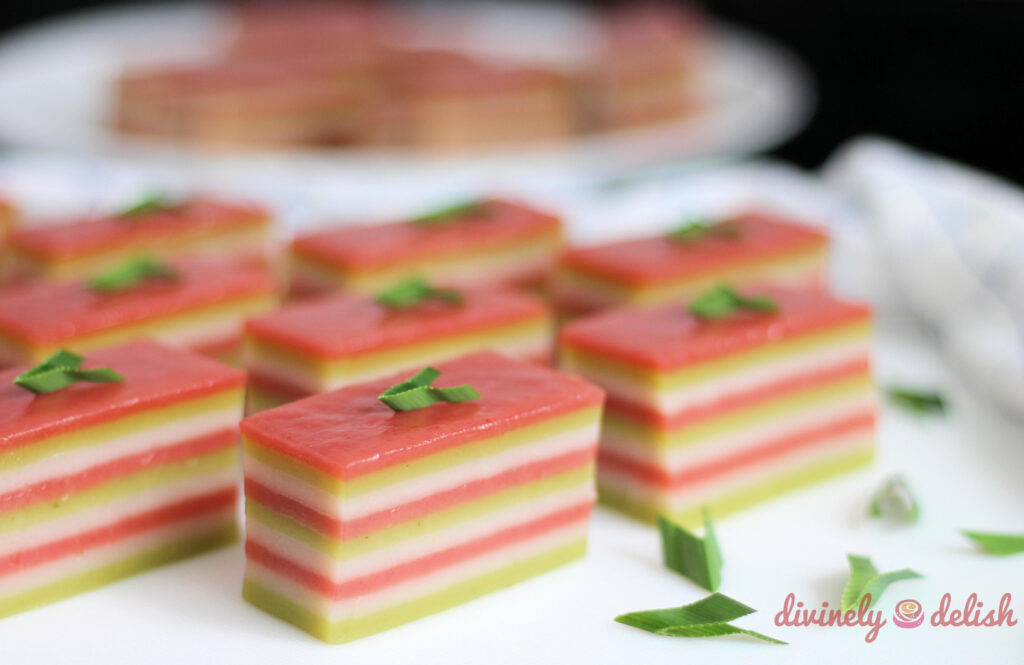
Taste and Texture
The taste of Kuih Lapis Malaysia is a delightful combination of sweet and creamy flavours. The bottom layer of glutinous rice provides a slightly chewy texture, while the top layer of pandan custard adds a smooth and velvety mouthfeel. The fragrance of pandan leaves permeates the cake, lending a distinct aroma that is both comforting and inviting. Each bite offers a burst of flavour and a satisfying contrast in textures.
Significance in Malaysian Culture
Kuih Lapis Malaysia holds a significant place in Malaysian culture and is often associated with joyous celebrations and cultural festivities. It is commonly served during major holidays such as Hari Raya Aidilfitri, Chinese New Year, and Deepavali. The dessert symbolizes unity and togetherness as it is shared among family and friends, strengthening the bonds of love and kinship. Its presence on the dining table is a testament to the rich culinary traditions that Malaysians hold dear.
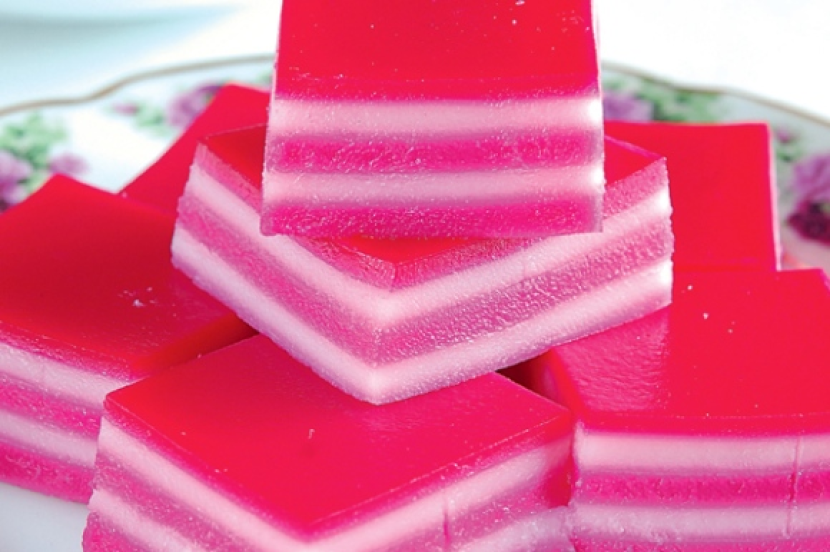
Conclusion
Kuih Lapis Malaysia is a beloved dessert that embodies the cultural diversity and culinary heritage of Malaysia. Its vibrant colours, delightful taste, and layered presentation make it a treat for both the eyes and the palate. Whether enjoyed during festive occasions or as an everyday indulgence, Kuih Lapis Malaysia is a true Malaysian delight that brings people together and evokes a sense of joy and celebration. So, the next time you have the opportunity, be sure to savour this delectable dessert and experience the flavours of Malaysia in every bite.
Article curated by Lavanyah Magenthiran

